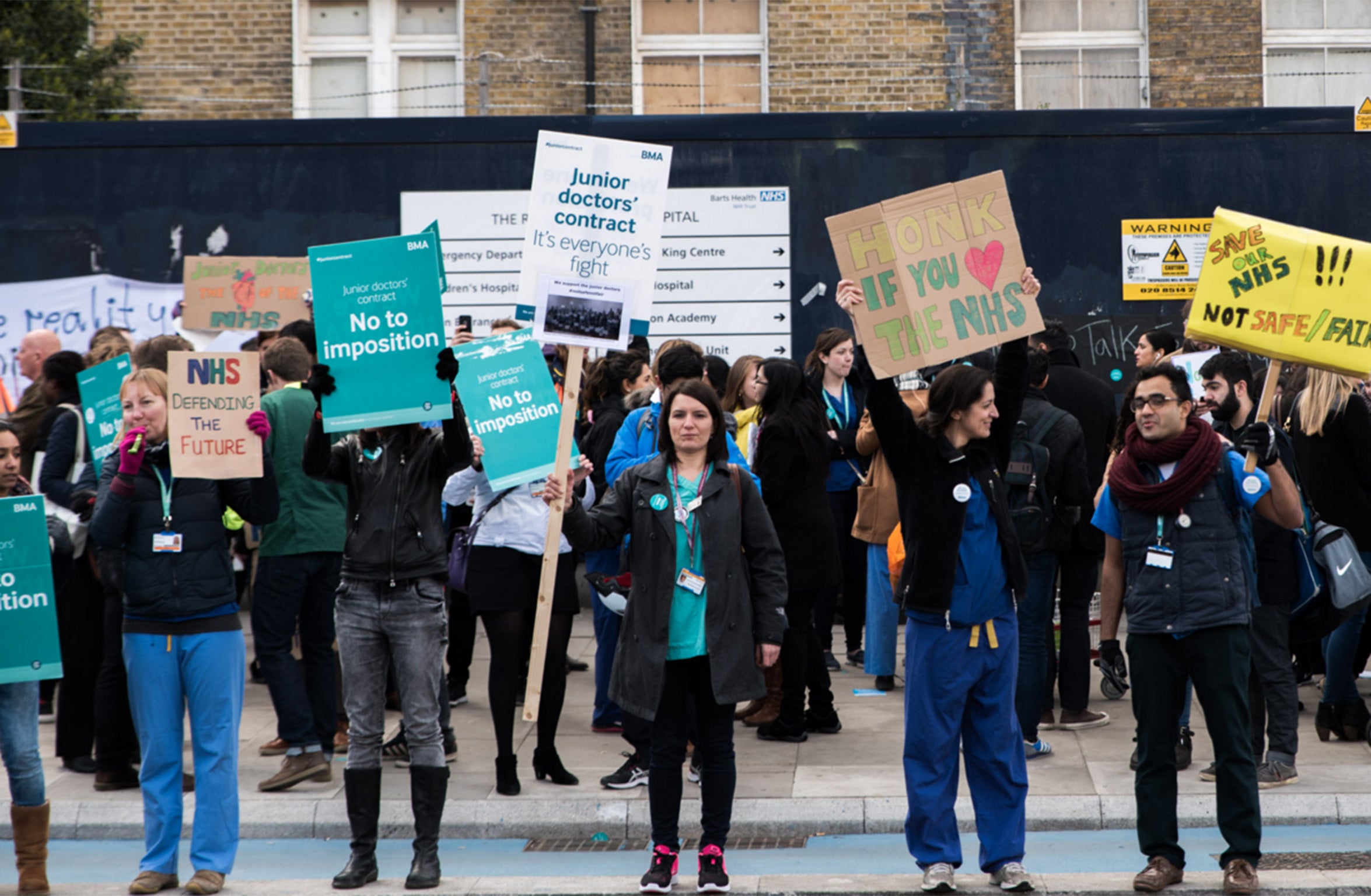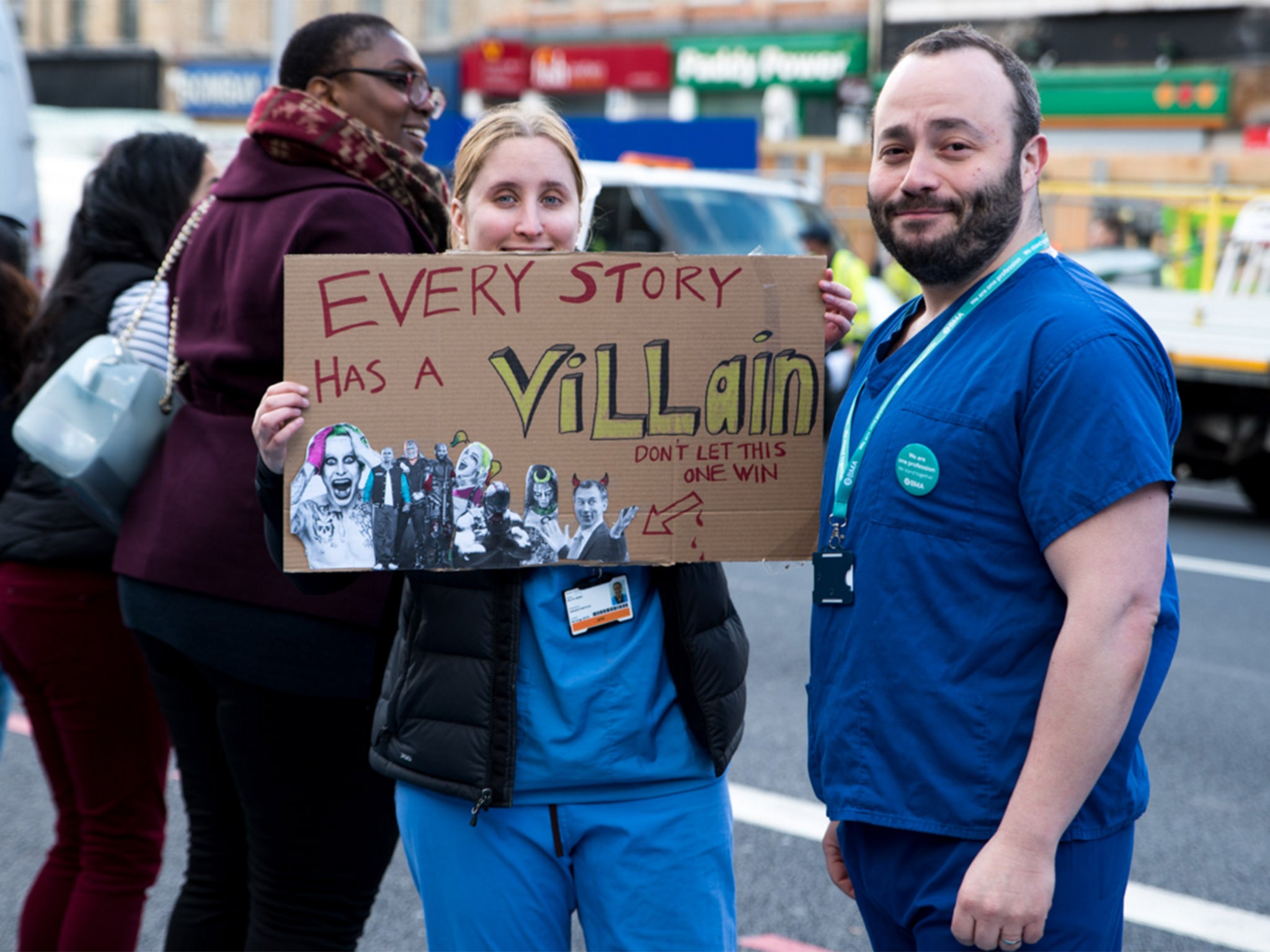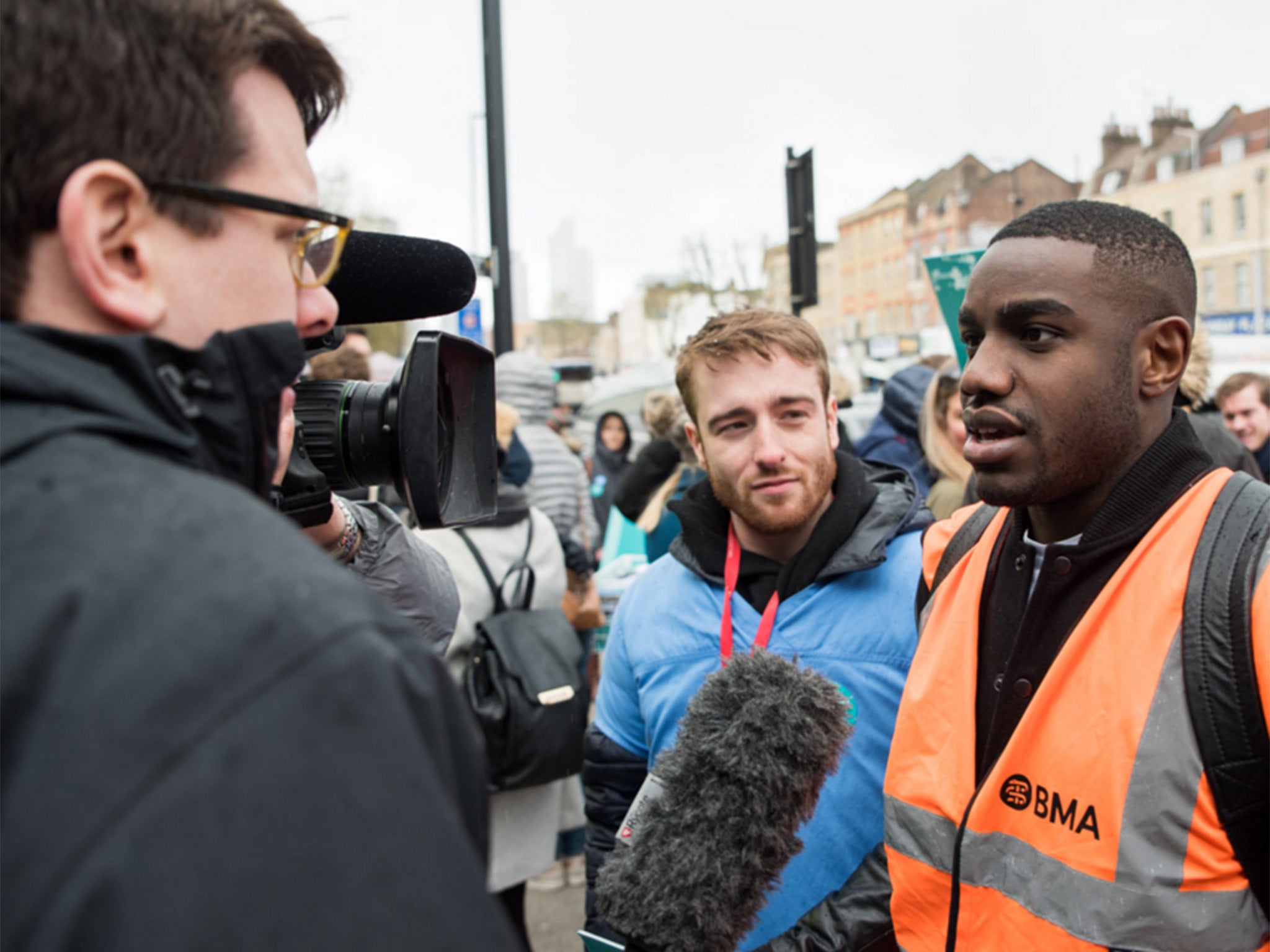Junior doctors' warning to Jeremy Hunt: Start talking, or strikes will get worse
The dispute between the government and the BMA union has led to the first all-out strike in the NHS's history. But angry junior doctors on the picket line tell The Independent they are not optimistic for a positive outcome

Your support helps us to tell the story
From reproductive rights to climate change to Big Tech, The Independent is on the ground when the story is developing. Whether it's investigating the financials of Elon Musk's pro-Trump PAC or producing our latest documentary, 'The A Word', which shines a light on the American women fighting for reproductive rights, we know how important it is to parse out the facts from the messaging.
At such a critical moment in US history, we need reporters on the ground. Your donation allows us to keep sending journalists to speak to both sides of the story.
The Independent is trusted by Americans across the entire political spectrum. And unlike many other quality news outlets, we choose not to lock Americans out of our reporting and analysis with paywalls. We believe quality journalism should be available to everyone, paid for by those who can afford it.
Your support makes all the difference.The NHS survives on the “goodwill” of its doctors to put in the extra hours needed to save people’s lives – and after more than 60 years, those noble intentions have finally been stretched too far.
That’s the verdict of Dr Dhanuka Perera, who along with up to 100 colleagues took to the streets outside the Royal London Hospital to protest the imposition of a contract for junior doctors which, protesters told The Independent, will risk people’s lives.
Angry and embittered by a dispute with the government that has now seen all communication break down, the doctors on the picket line were remarkably pessimistic about the prospect of any positive resolution – yet also determined not to back down.
Blasting through loudspeakers and writ large on placards, the message to Jeremy Hunt was clear – come back to the negotiating table, or face the prospect of longer strikes which could, in the words of one doctor on Tuesday, “bring the NHS to its knees”.

Dr Abhishek Joshi, a 34-year-old trainee cardiologist who helped organise the protests, said doctors had been left with no choice but to walk out because the government “won’t talk to us”.
“We’ve got no option, there’s no other way to communicate with them anymore,” he said. “We’ve had to come stand in the street in the freezing cold – in the snow – and try to get their attention, rather than going into work and treating our patients which is where we want to be.”
For this week’s strikes, at least, the doctors are certain lives will not be put at risk. At the Royal London, consultants have turned out to cover their junior colleagues in such numbers that the care on offer will actually be better than normal – a fact the picketers are happy to report.
But with neither side willing to back down, doctors are considering options to escalate matters, with options including a strike without the 5pm cut-off point, walk-outs lasting days on end or even the prospect of devastating, coordinated mass resignations.
“Jeremy Hunt has lost touch with the junior doctors,” said Dr Kyle McBeath, 30. “He was nowhere to be found when there were original concerns, and now as things have got worse he’s only become more and more reclusive.
“Either side could end the dispute by backing down, but you get the feeling that won’t happen. Hunt is stuck – he either pushes it through or he loses his job. I don’t see how it changes, I just see it getting worse. It’s terrible.”
Beth, 28, is another protest organiser. She accuses Mr Hunt of hypocrisy after he was so vocal about his support for whistleblowing processes in the NHS – processes that hinge upon “working with and listening to people even if you don’t agree with them”.
“He’s called us militants,” she says. “You can’t talk about whistleblowing and then not listen when a bunch of people tell you they’ve got a patient safety concern.”
She says that the impact on morale and staff retention means that without a resolution, the dispute will have a lasting impact on the NHS’s ability to care for patients, strikes or no strikes.
“For me, the most upsetting thing has been seeing my friends leave,” she says, clearly incensed.
“I’ve been through medical school with them, through our expensive medical exams, I’ve seen them struggle to maintain relationships despite missing multiple important family events, and this for many of them has just been the nail in the coffin.”
The disagreement hinges on the government’s manifesto pledge to extend the seven-day working of the NHS, while also making savings in keeping with the core Tory promise to cut the deficit.
Most doctors here say they appreciate Mr Hunt is “stuck” trying to do both, and the issue is more with the policy than the man himself.
But they cannot help be angered by the language used by the Health Secretary in the media, particularly after he said on the morning of the strikes that the junior doctors were trying to “blackmail” the government for more money.
“Is a strike a form of blackmail?” asks Jack, 29. “It’s blackmail [for Mr Hunt] to say we are imposing a contract that you have to go by, because you’ve spent 10 years of your life training in a certain field, and if you don’t take it you don’t have a job anymore. That’s a form of blackmail as well.”
The protest outside the Royal London overlooks a busy road into the heart of the capital, and plays out to an accompaniment of blasting car horns as members of the public show what appears to be overwhelming support.
Inside the hospital, it is impossible to find a patient who doesn’t back the junior doctors’ action, even if they only really became aware of it on their way in on the day.
Mother-to-be Chiyedza Majasi, 36, says she feels like waiting times have been a little longer but adds: “I’m prepared to do that because I support the strike.”
Would she still back action if the dispute continued and it got increasingly disruptive? “I think so,” she says. “The government needs to listen to the people.”

Matthew Reed, 39, says he heard Jeremy Hunt on the radio justifying the imposition of the contract because a seven-day NHS was in the Tory manifesto. He suggested this was an oversimplified response, “like saying we can sort out the Middle East by bombing all the countries”.
Linda Stock, at the hospital with her son Michael, said she was “right behind” the striking doctors.
And Lorraine Goodspeed, 63, said she “fully supports” the action. “It hasn’t affected me today at all,” she says, smiling.
Back outside, Dr Joshi says the only thing that could make Jeremy Hunt change his mind would be strong support for the doctors from the British people the minister represents.
“If he doesn’t hear that message from the public, then this is just going to drag on and on and on,” he warns.
“We’re not going to give up, until either we feel we have no option other than to do something crazier – and I hope we won’t – or the Secretary of State listens to either us or his constituents, and by that I mean the country.
“I don’t want to have to do this, and it could be over this evening if a government minister – I don’t care who it is – says let’s get back round the table and talk about what we’re doing.
“Because we know what the best thing for the NHS is, for the doctors, nurses and all the employees here, and we like to think we know what the right thing is for our patients. And that’s very different from what the Department for Health is putting across.”
Join our commenting forum
Join thought-provoking conversations, follow other Independent readers and see their replies
Comments